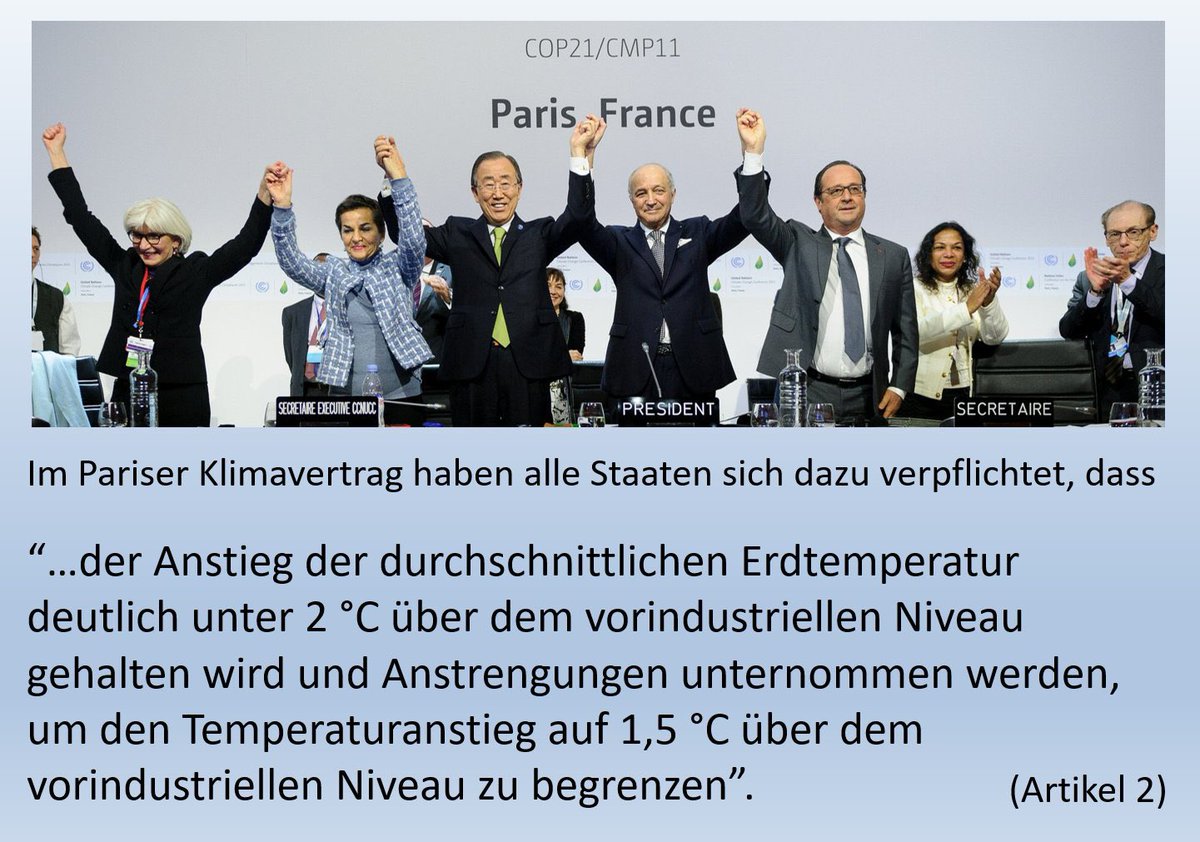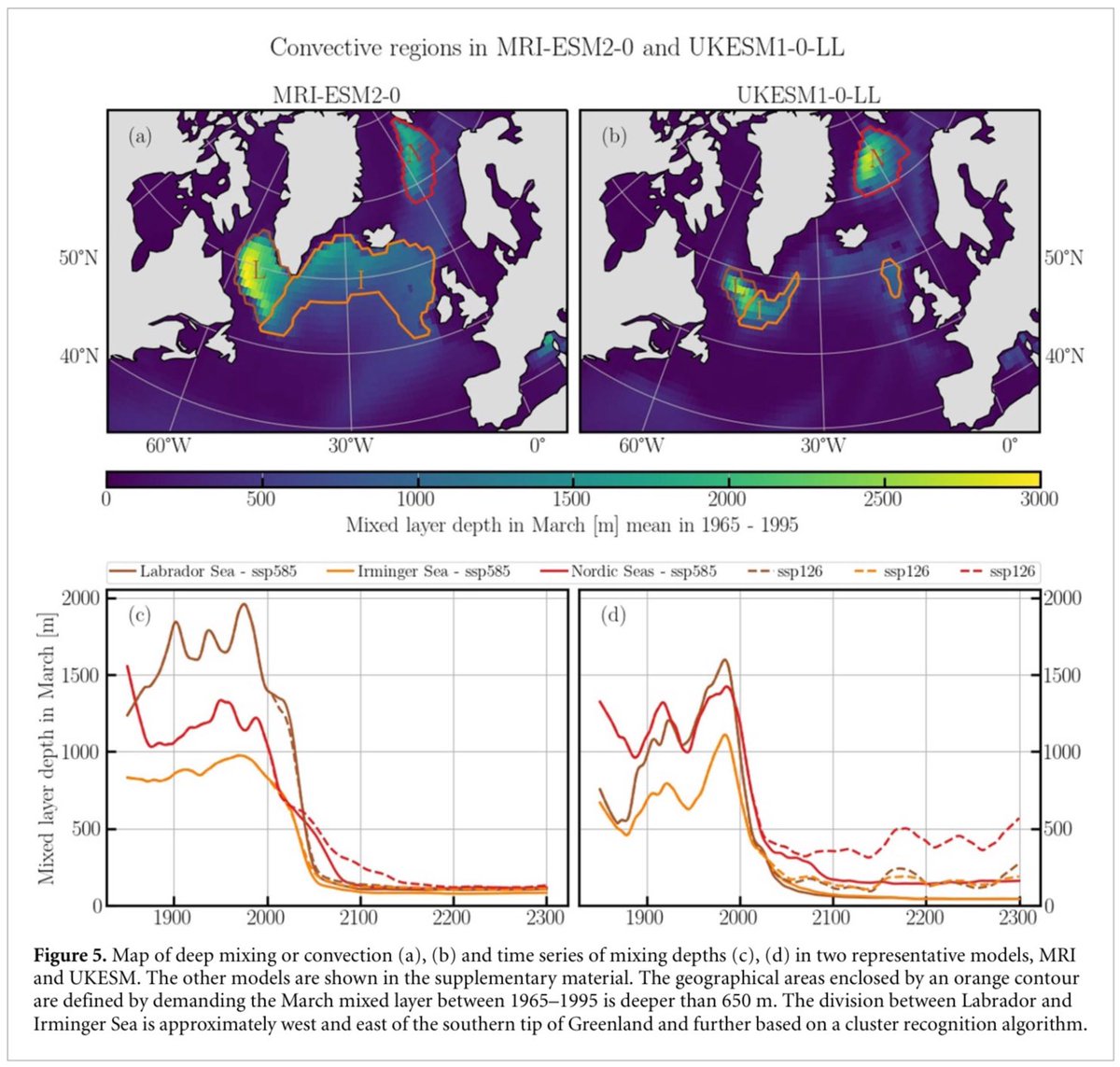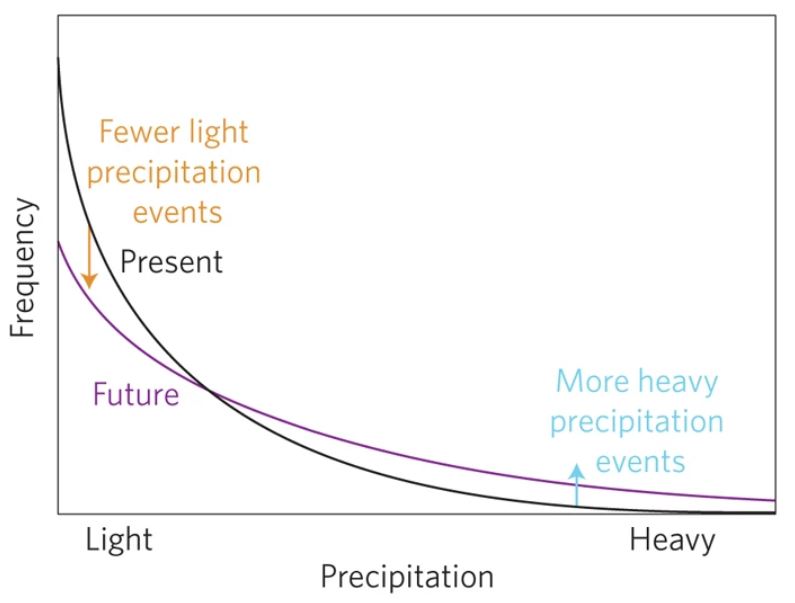Bitte einmal kurz innehalten und nachdenken, was dieses Zitat bedeutet. Es ist eine völkerrechtlich verbindliche Verpflichtung, die einstimmig vom Bundestag gebilligt wurde.

https://twitter.com/rahmstorf/status/1612080382643474437?s=46&t=gCX19oYZGf5Gtlh6px4wHg

Was bedeutet das Pariser Abkommen für die Emissionen? Sie müssen sofort steil runter, denn für das Klima zählen die *kumulativen* CO2-Emissionen. Also die Gesamtmenge an verbrannter Kohle usw., egal ob diese Menge bis 2030 oder 2038 verbrannt wird. 
https://twitter.com/rahmstorf/status/1612080382643474437?s=20&t=FRXRhq4mZ6g0MKxpIrM-kw

Auch das Bundesverfassungsgericht hat klar gemacht, dass wir es nicht einfach den jüngeren Menschen überlassen können, die Kohlen wieder aus dem Feuer zu holen. Die meisten Folgen der #Erderhitzung sind unumkehrbar auf Jahrhunderte bis Jahrtausende. Beim Artensterben für immer. 

Was sind die Folgen wenn wir die Klimaziele nicht einhalten? Im Buch 3 Grad Mehr fasse ich das Wichtigste auf 18 Seiten zusammen. Das Kapitel frei zum Dowload: pik-potsdam.de/~stefan/Public… 



Wem das immer noch zu komplex und wissenschaftlich ist, dem kann vielleicht der UN-Generalsekretär Guterres helfen. Der hat es so auf den Punkt gebracht, dass wirklich jeder es verstehen sollte, der nicht aktiv versucht die Realität zu verdrängen. 

• • •
Missing some Tweet in this thread? You can try to
force a refresh















